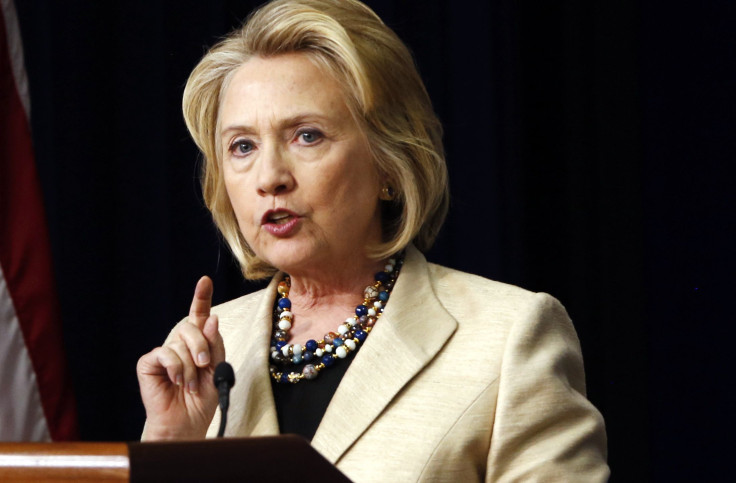Hillary Clinton's Stance On 2003 Iraq War May Come Back To Bite Her In 2016

Thousands of miles removed from the conflict playing out across Iraq, one key player could find herself under political fallout -- Hillary Rodham Clinton, whose expected 2016 presidential bid cannot be helped by yet another explosion of the Middle East powder-keg.
For Clinton and her extraordinary career -- from first lady and closest White House adviser to her husband to senator from New York, a nearly victorious presidential campaign and finally secretary of state under her rival Barack Obama -- Iraq has long presented political liabilities with uncomfortable staying power.
In 2002, then-Sen. Clinton voted in favor of the resolution that authorized George W. Bush's Iraq War, an action that arguably cost her the presidency in 2008 and has haunted her ever since. “If left unchecked, Saddam Hussein will increase his capacity to wage biological and chemical warfare and will keep trying to develop nuclear weapons,” she declared at the time.
Three years later, as she was gearing up for a presidential campaign that seemed to many like a coronation, Clinton was still defending her vote.
“There are many parts of Iraq that are functioning quite well,” she told USA Today in a 2005 interview during the U.S. occupation.
As great spans of Iraq now fall under the control of the Islamic State of Iraq and Syria, the jihadist Sunni sect that's too extreme even for al Qaeda, that sentiment is hard to square with the facts on the ground. Clinton is again finding her past support for the American war to be a millstone.
In a interview with NPR’s Terry Gross at the Council on Foreign Relations in New York, Clinton said she “could not have predicted … the extent to which ISIS could be effective in seizing cities in Iraq and trying to erase boundaries to create an Islamic state.”
The recent release of Clinton's memoir of her years at State, "Hard Choices," seemed timed to generate renewed interest in her just as she would be assembling the apparatus for the 2016 campaign. Yet in recent days much coverage has used the book as a platform to revisit her history as a supporter of the Iraq war -- the very element Obama played on most effectively in defeating her for the White House six years ago.
“I thought I had acted in good faith and made the best decision I could with the information I had," she writes in her book. "And I wasn’t alone in getting it wrong. But I still got it wrong. Plain and simple.”
During her stint as secretary of state, conventional wisdom had it that the White House played the key role on policy in the Middle East, while Clinton focused largely on Asia. But the legacy of having served in the Obama Cabinet now exposes her to charges that she was part of the team that failed to right Iraq after inheriting a disastrous war from Bush.
“The ISIS took root because of U.S. indifference to the security environment in Iraq after Obama’s election,” the staunchly conservative blog RedState declared in a post this week, laying the blame at the feet of the president and his first secretary of state, Clinton.
Three years ago, Clinton supported Obama’s troop withdrawal from Iraq, while many critics declared that the country was not prepared tend to its security alone.
“Iraq is a sovereign, independent nation with whom we have very good relations, and we expect to have a continuing strong security relationship with many years to come,” she told Politico in 2011.
Some warned that Iraqi politics were so fraught with religious and ethnic cleavages that the American pullout was premature. In an opinion piece in the New York Times, the Pulitzer Prize-winning Times war correspondent John Burns fretted about the “possibility of worsening violence by Sunni and Shiite militias. … With American troops gone, and with them the role they have played as the ultimate guarantor of the new constitutional rules adopted under American occupation, all bets, at least potentially, will be off,” he concluded.
Now, bets on Clinton's candidacy are again being complicated by Iraq, in what could be a 2008 redux.
Capturing this sense in The Week, Ryan Cooper suggested that Clinton “would be president today if she hadn't supported the 2003 Iraq invasion." He suggested that she could now face a Democratic primary challenger from the left given the same issue that has dogged her for a dozen years -- the conflict in Iraq.
© Copyright IBTimes 2024. All rights reserved.






















